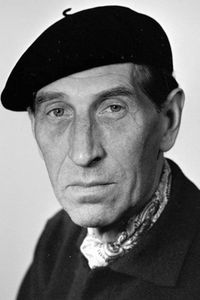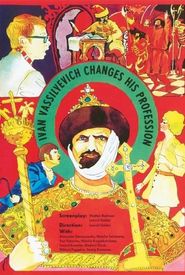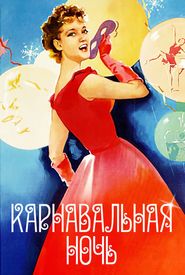Sergey Filippov, an individual of humble beginnings, came into this world in the city of Saratov, where his parents, a locksmith and a dressmaker respectively, worked tirelessly to provide for their family. Despite the best efforts of his parents, Sergey's academic pursuits did not yield the desired results, and he failed to excel in his studies. However, his lack of academic prowess was compensated by his dominant personality, which earned him a reputation as a bully during his high school years.
It was during a chemistry lesson that Sergey's impulsive nature got the better of him, as he decided to conduct an experiment without the supervision of his teacher. The outcome was a pungent smell that wafted through the classrooms, causing a significant disruption to the learning environment. This unfortunate incident ultimately led to Sergey's expulsion from school, a turning point in his life that would have a lasting impact on his future endeavors.
After completing his formal education, Filippov embarked on a vocational journey, initially taking on a role as a student baker, although this occupation failed to spark a lasting sense of fulfillment within him. Undeterred, he pursued a series of diverse job opportunities, experimenting with various careers until he stumbled upon a ballet studio, which instantly captivated his imagination and ignited a newfound passion.
As a student at the ballet studio, Filippov demonstrated exceptional aptitude and dedication, rapidly rising through the ranks and earning recognition as a prodigious talent in the world of ballet.
Filippov embarked on a pivotal journey in 1929, relocating to the vibrant city of Moscow with aspirations to hone his craft at the prestigious Bolshoi Theater's ballet school. Alas, fate had other plans, as he arrived at the school mere moments too late, prompting the instructors to recommend an alternative educational path in Leningrad.
Disappointed yet undeterred, Filippov redirected his attention to the city of Leningrad, where he sought to enroll in a choreographic school. However, his timing was once again off, as he missed the entrance exams by a narrow margin. In a surprising twist, Filippov's fortunes took a turn for the unexpected, as he received an acceptance letter from the newly established circus variety college, an institution that would ultimately shape his artistic trajectory.
Filippov embarked on a remarkable journey following his graduation, as he joined the esteemed Opera and Ballet Theater's troupe in the year 1933, marking the beginning of his illustrious career as a ballet dancer.
However, his tenure as a ballet dancer was tragically cut short due to a sudden and unforeseen heart attack, prompting medical professionals to advise him to cease his ballet performances and seek alternative pursuits.
In the aftermath of this unexpected turn of events, Filippov redirected his artistic energies by entering the realm of pop theater, where he went on to perform with great aplomb and enthusiasm in the vibrant city of Leningrad, leaving a lasting impression on the cultural landscape of the region.
Nikolai Pavlovich Akimov, a prominent figure in the entertainment industry, was present at a concert where he stumbled upon a talented individual, whose remarkable performance caught his attention. This serendipitous discovery led Akimov to extend an invitation to the Leningrad Comedy Theater, where the actor in question would go on to hone his craft from 1935 to 1965. Following his tenure at the theater, Filippov joined the esteemed film studio "Lenfilm", marking the beginning of a new chapter in his illustrious career.
Throughout his years in the spotlight, Filippov garnered widespread acclaim for his memorable roles in a diverse range of films. Some of his most notable performances include his appearances in "Tiger Tamer", "Carnival Night", "Girl without an Address", "12 Chairs", and "Ivan Vasilievich Changes His Profession". These critically acclaimed films cemented his status as a beloved and respected figure in the world of entertainment.
Filippov's remarkable acting prowess enabled him to effortlessly take on intricate roles and episodic performances, solidifying his widespread popularity in Leningrad and prominent cities throughout the nation during the 1940-1960s era.
As a celebrated figure, he continued to captivate audiences in major cities across the country, leaving an indelible mark on the entertainment industry.
In 1965, a life-altering diagnosis revealed the presence of a brain tumor within him, setting off a chain of events that would forever change the trajectory of his life and career.
In the years leading up to the filming of "12 Chairs" in 1971, Filippov struggled with increasingly severe headaches, a stark reminder of the challenges he was facing due to his medical condition.
Notwithstanding the slim probability of a successful recovery, Filippov persevered through the arduous treatment process, ultimately emerging victorious and going on to live an additional two decades, during which time he continued to showcase his remarkable talent by taking on his final acting role under the guidance of the renowned director Leonid Gaidai.
In the years that followed, Filippov's remarkable life came to a close, and he was laid to rest in the Northern Cemetery, where he was joined in eternal repose by his beloved Antonina Golubeva. In a touching tribute to his memory, the St. Petersburg film actors guild saw fit to erect a majestic bust on his grave, a poignant reminder of the indelible mark he left on the world of cinema.
Before his passing, the renowned Russian actor, Filippov, shared a poignant confession with his dear friend, Lyubov Tishchenko, revealing that his long-held aspiration was to bring to life a character that would evoke a sense of tragic nobility, yet tragically, his career trajectory had been marked by a preponderance of villainous roles, leaving him with an unfulfilled longing.




















